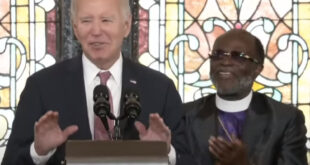In today’s polarized world, the phenomenon of blind loyalty to political parties, even in the face of undeniable corruption, treason, and the manipulation of public opinion through a complicit media, is disturbingly common. This allegiance goes beyond mere disagreement on policies; it manifests as deliberate ignorance, where supporters refuse to acknowledge the lies and deceit of their chosen party. But what drives this behavior? Why do people exhibit such overt cognitive dissonance and the inability to think critically?
The Psychology of Blind Loyalty
Psychologists and researchers have long studied the reasons why people cling to belief systems or political parties even when they are faced with evidence that contradicts those beliefs. One major theory is rooted in cognitive dissonance, a term first coined by Leon Festinger in 1957. Cognitive dissonance refers to the psychological discomfort experienced when an individual holds two or more contradictory beliefs or values at the same time. When faced with evidence that a political party is corrupt or dishonest, the supporter experiences discomfort, and to alleviate this, they often rationalize or dismiss the evidence rather than confront the contradiction head-on. This explains why many remain loyal even in the face of egregious behavior by their preferred political group.
Additionally, research published in the Journal of Social and Political Psychology suggests that confirmation bias plays a critical role. Confirmation bias is the tendency to seek out information that confirms one’s existing beliefs while dismissing or ignoring information that challenges those beliefs. In the digital age, where individuals can easily curate their media consumption, this bias is exacerbated. People choose to surround themselves with like-minded voices, reinforcing their political allegiances and reducing the likelihood of challenging their beliefs.
The Role of the Media in Perpetuating Blind Loyalty
Another factor contributing to this phenomenon is the role of the media. In his book, Manufacturing Consent, Edward S. Herman and Noam Chomsky describe how mass media can manipulate and shape public perception to serve the interests of powerful elites. When media outlets act as tools of a political party, they can create a distorted reality that loyal followers accept without question. Media outlets aligned with a particular political ideology craft narratives that resonate emotionally with their audience, focusing on identity politics, fear-mongering, and us-versus-them mentalities.
This echo chamber effect, amplified by social media, keeps individuals insulated from opposing viewpoints. In The Filter Bubble, Eli Pariser explores how algorithms and content curation online have led to a fragmented and polarized media landscape where individuals are exposed only to the viewpoints they already agree with. This further entrenches blind loyalty and reinforces a black-and-white worldview, making it difficult to think critically or consider opposing arguments.
Spiritual Blindness and Christian Perspectives
From a Christian standpoint, this blind allegiance can be viewed as a form of spiritual blindness. In his teachings, R.C. Sproul often emphasized the dangers of idolatry—putting loyalty to a political figure, party, or ideology above one’s commitment to truth and to God. In The Holiness of God, Sproul writes about how sin distorts our perception of reality, leading people to justify evil for the sake of maintaining power or position.
Similarly, Pastor John MacArthur has spoken at length about the dangers of placing political loyalty above Christian principles. In his sermon, “Christians and Politics: Part 2,” MacArthur warns believers against conflating political ideologies with Christian doctrine. He argues that the kingdom of God transcends human politics, and Christians should be careful not to fall into the trap of defending morally bankrupt leaders out of party loyalty.
Both Sproul and MacArthur would argue that blind loyalty to a political party often stems from a deep-seated fear of losing identity, power, or security. When political ideologies become intertwined with personal identity, individuals may feel that to question their party is to question themselves. This kind of political idolatry blinds individuals to the truth and causes them to justify even the most corrupt actions.
Group Identity and Tribalism
Sociologist Jonathan Haidt, in his book The Righteous Mind, delves into the idea of moral foundations theory, which suggests that our political allegiances are often shaped by deep-seated moral intuitions and group identity rather than by rational thought. Haidt explains that political parties have become modern-day tribes, with individuals aligning themselves with a group not based on policies but on shared identity and belonging. Loyalty to the group often takes precedence over loyalty to the truth.
In a study published in Political Behavior, researchers demonstrated how social identity theory influences political allegiance. People derive a sense of belonging and self-worth from their group affiliations, and political parties often serve as a powerful source of identity. When individuals perceive their group as under attack—whether from opposing parties or the media—they become even more entrenched in their loyalty. This loyalty often overrides rational decision-making, leading to the defense of indefensible actions.
The Sin of Willful Ignorance
From a Christian perspective, this phenomenon can also be understood as a form of willful ignorance, which the Bible warns against. Proverbs 1:7 tells us that “The fear of the Lord is the beginning of knowledge, but fools despise wisdom and instruction.” When individuals close their minds to the truth and cling to lies for the sake of political loyalty, they are acting in defiance of God’s call to seek wisdom and discernment. In Romans 1:28-32, Paul describes how people who reject the truth are given over to a depraved mind, unable to see or accept what is righteous.
Christian commentators like Al Mohler have often spoken about the moral responsibility of believers to think critically and not be swayed by the winds of political manipulation. Mohler emphasizes that Christians should be guided by Scripture, not by the shifting sands of political ideology. He warns against the dangers of aligning oneself too closely with any political party, reminding believers that their ultimate allegiance is to Christ.
Conclusion
The blind loyalty we witness in politics today is the result of a complex interplay of psychology, media influence, tribalism, and spiritual blindness. Cognitive dissonance, confirmation bias, and social identity theory help explain why people cling to their political allegiances even when faced with overwhelming evidence of corruption. From a Christian perspective, this loyalty can be viewed as a form of idolatry and willful ignorance, where political ideologies are elevated above truth and moral integrity.
As believers, we are called to seek wisdom and discernment, to challenge falsehoods, and to hold our leaders accountable. Our loyalty should be to the truth, not to any party or political figure. As R.C. Sproul and John MacArthur remind us, we must guard against the temptation to put political loyalty above our commitment to Christ and the principles of His kingdom.
In an age where media manipulation and political tribalism are rampant, we must strive to think critically, seek the truth, and stand firm in our convictions, even when it means standing alone.
- Surrendering the Fight to Christ: Trusting the Lord to Lead This Battle - October 16, 2024
- The Teamsters Have Sold Out Their Christian Members: A War Between Good and Evil - September 29, 2024
- Kamala Harris: Duping the Dupes, Goebbels Style - September 14, 2024
 UPS Needs Jesus A Workplace Ministry
UPS Needs Jesus A Workplace Ministry



